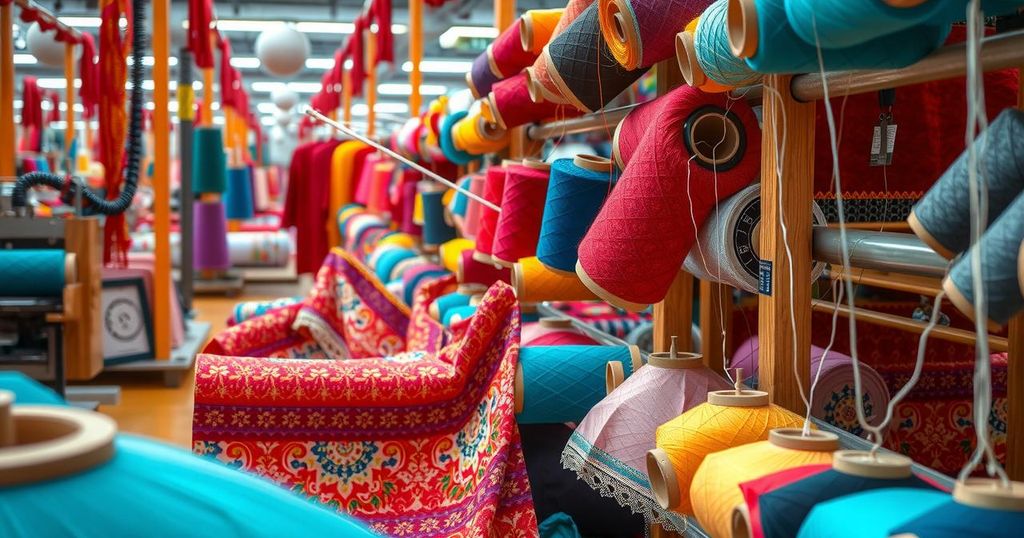Business
economics
ASIA, COLOMBO, DONALD TRUMP, ECONOMY, ENGAGES GOVERNMENT ON URGENT RESPONSE TO U. S. TARIFFS THREATENING EXPORT SECTOR, EXPORTS, FOREIGN INVESTMENT, GOVERNMENT OF SRI LANKA, JAPAN, JOINT APPAREL ASSOCIATION FORUM, LAWRENCE, NORTH AMERICA, SRI LANKA, SUPPLY CHAIN, TRADE, U. S, UNITED STATES, US, US GOVERNMENT, USA, YO, YOHAN LAWRENCE
Fatima Khan
0 Comments
JAAF Urges Swift Action Against U.S. Tariffs Impacting Sri Lanka’s Apparel Sector
Sri Lanka’s apparel industry is alarmed by the U.S. Reciprocal Tariff policy, which could raise tariffs to 44% for the country. This change threatens the sector that accounts for 40% of its exports. The JAAF commended the government’s quick formation of a working group to address the potential impacts. The industry is focused on maintaining ethical practices and sustainable growth despite the challenges ahead.
On April 4, 2025, the Joint Apparel Association Forum (JAAF) of Sri Lanka highlighted significant concerns regarding the United States’ introduction of a Reciprocal Tariff policy. This new policy, announced by President Donald Trump, imposes a 10% baseline tariff on all U.S. imports effective April 5, which may escalate to as high as 44% for Sri Lanka, jeopardizing the country’s apparel export sector.
Yohan Lawrence, Secretary General of JAAF, emphasized the detrimental effect such tariffs could have, noting, “This tariff is significantly higher than what our regional competitors face. We could see a rapid shift in U.S. sourcing away from Sri Lanka, which would be extremely difficult to recover from.” The U.S. remains Sri Lanka’s largest apparel market, contributing over 40% to the sector’s exports worth more than USD 5.5 billion in 2023.
In light of these developments, JAAF has praised the swift action from the Government of Sri Lanka in creating a working group to evaluate the economic implications of the U.S. decision. Lawrence expressed appreciation for the government’s prompt response: “We appreciate the urgency with which the Government has responded. We are working closely with the relevant authorities to determine a constructive path forward that also remains consistent with Sri Lanka’s ongoing IMF programme.”
The working group is currently preparing a proposal for His Excellency the President. JAAF has underscored the necessity for rapid action and expressed confidence that effective measures will be implemented in the national interest. Despite the challenges posed by the tariffs, Sri Lanka’s apparel industry is committed to upholding ethical manufacturing, transparency, and sustainable growth.
In conclusion, the new U.S. Reciprocal Tariff policy poses a significant threat to Sri Lanka’s apparel export sector, prompting urgent responses from both the JAAF and the Sri Lankan government. The anticipated increase in tariffs may lead to reduced U.S. sourcing for Sri Lankan apparel, demanding immediate and constructive measures. Nonetheless, the industry remains dedicated to ethical practices and sustainable growth amidst these challenges.
Original Source: www.textileworld.com




Post Comment